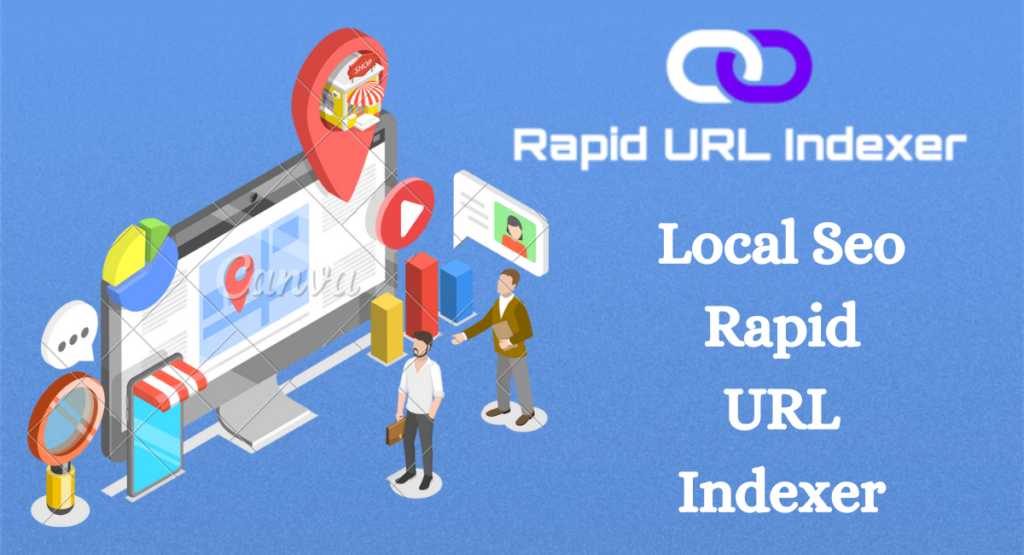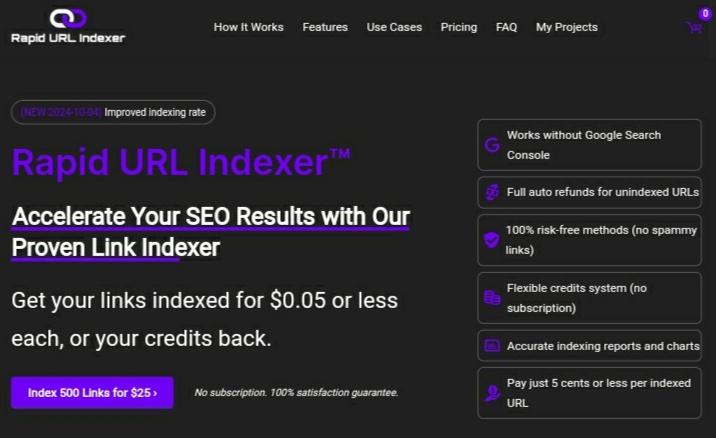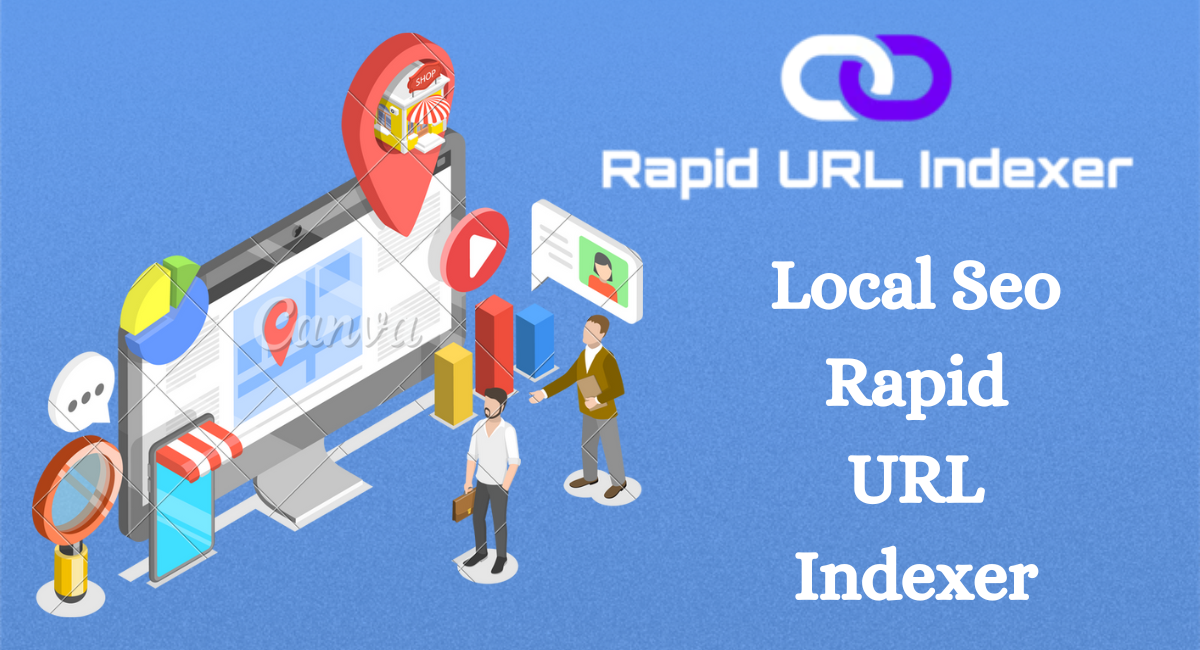
A Local SEO Rapid URL indexer is a tool. It helps businesses quickly index their local content by search engines. This process improves their visibility in local search results. Local SEO focuses on optimizing a business’s online presence to attract customers from specific geographic areas. A rapid URL indexer accelerates getting your local content noticed by search engines. This includes service pages, location-based blogs, or Google My Business profiles.
What is Local SEO?
Most people don’t realize that Google uses multiple algorithms to return search results. Search engine optimization, commonly called SEO, is a strategy. It involves optimizing signals on and off a website. This optimization influences how the site appears when certain keywords are searched.
When most marketers and business owners talk about SEO, they’re talking about regular, traditional SEO that targets Google’s traditional algorithm. Google uses a different algorithm to return localized search results. Local SEO focuses on optimizing signals to target that specific algorithm.
Google can analyze the gazillions of queries it receives. It has figured out that for certain business types, users still need search results in the local area. This remains true even without any geographic modifiers in a search query. Users do not need to include a city, a neighborhood, or phrases like “near me” or “nearby.”
I love to use the pizza example here. It’s not just because pizza is delicious. If you’re in a new town and you need to get a pizza, you’d pop on to Google. You would do a search for something like “pizza delivery”. Google will show you pizza joints that are nearby, even though you didn’t specify a location.
That’s Google’s local algorithm in action. Suppose the best SEO in the world optimized a pizza restaurant in New York City. Google’s algorithm is still smart enough. It only shows you pizza spots in your immediate area.
Any business with a physical storefront or that serves customers in a particular geographic area needs Local SEO. The easiest way to check whether the local algorithm applies to your business is with a quick Google search. Search for a handful of your most important keywords and check out the search results.
You can see a map pack if there is a map with three results underneath. That’s a clear signal that the local algorithm returned those results. This means your business needs Local SEO.
But Local SEO isn’t only about the map pack. With Local SEO, you’re also targeting localized organic results and searches on Google Maps. Your business’s physical location is important. So is proximity, which is how far away you are from the user who’s doing the search.
The radius for local search results varies greatly between different verticals and even different cities. Typically, the more concentrated the competition.
What is URL Indexer ?
A URL indexer is a tool or service. It helps web pages get discovered. It assists in getting indexed by search engines like Google, Bing, and Yahoo more quickly. When a URL is indexed, the search engine has crawled the webpage. It has recognized its content. The webpage is stored in its database. This process makes it eligible to appear in search results.
Search engines might take days, weeks, or even longer to crawl and index new or updated pages without an indexer. This delay is especially evident for low-traffic or new websites. A URL indexer speeds up this process. It submits the URL directly to search engines or notifies them through specialized methods. This ensures that the content is recognized and displayed in search results faster. This is particularly useful for SEO purposes, reputation management, and ensuring timely content visibility.
Why Use a Local SEO Rapid URL Indexer?

A Local SEO rapid URL indexer can be a game-changer for businesses aiming to boost their local search rankings. Here’s why it’s worth using:
1. Faster Indexing
Search engines don’t always index new pages right away. A rapid URL indexer speeds up this process, ensuring your local content appears in search results much sooner. This is crucial for businesses needing quick visibility for time-sensitive offers, promotions, or updates. The faster your pages are indexed, the sooner they can start driving local traffic.
2. Improved Visibility
Getting your content indexed quickly is essential, but it’s also about where it ranks. A rapid URL indexer ensures your locally optimized pages are crawled by search engines. This recognition enhances their visibility. Whether you’re a local service provider or retailer, this means potential customers can find you faster. This increases your chances of generating leads.
3. Better Performance Tracking
Many rapid URL indexers come with tracking tools that allow you to monitor which of your URLs are successfully indexed. This helps you gauge the effectiveness of your local SEO efforts and adjust your strategy as needed. You can identify which pages are performing well. You can also identify which need further optimization. This makes your local SEO campaigns more targeted and data-driven.
Using a Local SEO rapid URL indexer ensures your content is seen faster. It also helps improve overall performance and visibility in local search results.

How to Use a Local SEO Rapid URL Indexer: A Step-by-Step Guide
Local SEO is essential for businesses looking to attract customers from their geographic area. A rapid URL indexer can help ensure your local content gets indexed quickly by search engines, boosting your visibility. Here’s a step-by-step guide on how to use a rapid URL indexer effectively for local SEO.
Step 1: Choose the Right Tool
The first step is selecting the right rapid URL indexer for your local SEO needs. Tools like One Hour indexing, indexing, or Google Search Console are excellent choices. Each tool offers unique features. Assess factors like speed, pricing, and additional features like progress tracking before making your choice. Make sure the tool integrates well with your overall SEO strategy.
Step 2: Prepare Your URLs
Before submitting, ensure your URLs are properly optimized for local SEO. This includes using local keywords, updating meta tags, and ensuring the content is relevant to your local audience. If your website isn’t optimized, even rapid indexing won’t help your rankings as much as it should. Also, make sure all URLs you plan to submit are live and accessible to crawlers.
Step 3: Submit Your URLs
After preparing your URLs, use your chosen tool to submit them for indexing. This process varies slightly depending on the platform. Typically, it involves pasting the URL into a submission box. Alternatively, you might upload a list of URLs. Some tools allow bulk submission, making it easier to index multiple pages quickly. For local SEO, focus on pages like your homepage, service area pages, and blog posts with a local focus.
Step 4: Monitor Your Results
Once your URLs have been submitted, monitor their indexing status using tools like Google Search Console. Many rapid indexers also provide progress updates, so you can track which pages have been crawled and indexed. This helps you ensure that your efforts are working. It gives you insight into which content is resonating with local search algorithms.
Step 5: Optimize Regularly
Local SEO is an ongoing process, and simply indexing a URL doesn’t guarantee long-term success. Regularly update your content to keep it fresh and relevant for your local audience. Optimize for local SEO factors by obtaining local backlinks. Enhance your Google My Business profiles. Keep location information accurate across platforms.
Is rapid url indexer safe to use
Yes, Rapid URL Indexer uses only safe, white hat methods to get your URLs crawled and indexed
How often should I use Rapid URL Indexer for my website
It’s recommended to use Rapid URL Indexer regularly, especially when you add new content or make significant updates to your site, to ensure timely indexing by search engines.
Can Rapid URL Indexer improve Google search rankings?
Faster indexing leads to quicker improvements in search rankings and organic traffic.

Vishal Raj a Blogger and a Author! Fountainhead of iGadgetsBlog
